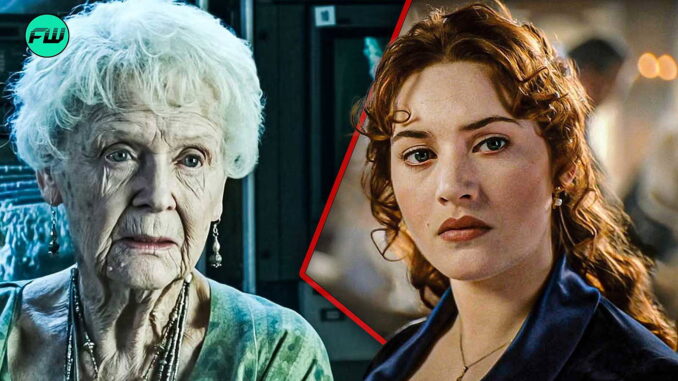
The icy grip of the North Atlantic, the splintering screams of a dying ship, and the haunting silhouette of a young woman adrift on a door – James Cameron’s Titanic etched itself into our collective consciousness as an epic of love, class, and catastrophe. At its heart, Rose DeWitt Bukater emerges as a survivor, a heroine who defies societal expectation and finds true love amidst the chaos. Yet, for all her strength and resilience, a lingering whisper of critique often follows her: "There was room for two on that door." This seemingly trivial observation taps into a deeper discomfort, suggesting that perhaps Rose, in her eventual survival and relatively happy life, isn't as sympathetic a figure as she could be. An alternate ending, one that delves deeper into her trauma, sacrifice, and the enduring burden of her loss, would undoubtedly cast her in a more profoundly sympathetic light, elevating her from merely a survivor to a figure forged and scarred by an unimaginable ordeal.
Consider an alternative to the iconic "door" scene, one that paints Rose’s final moments with Jack not as a passive vigil, but a desperate, visceral struggle for his life, and her own. Imagine the film showing Rose, hypothermic and shivering, not just lying beside Jack but actively trying to revive him. Her frozen fingers might work frantically at his buttons, trying to shield him from the biting wind, perhaps even stripping off a piece of her own meager clothing to offer him a futile layer of warmth. We could witness her trying to paddle the debris with bare hands, her efforts becoming weaker and weaker, a frantic dance against the inevitable. The revelation that Jack is gone would not be a quiet, resigned acceptance, but a guttural scream ripped from her very soul, a desperate shake of his lifeless form, refusing to believe, refusing to let go. When she finally does push him back into the abyss, it would be portrayed not as a necessary step for her own survival, but a wrenching, agonizing act of surrendering his corporeal form to the sea, a physical tearing away of her last tangible connection. This version would unequivocally absolve her of the "room for two" critique, demonstrating her complete devotion and the crushing helplessness of the situation, making her a sympathetic figure whose survival is less a triumph and more a testament to a will broken yet forced to persist.
Furthermore, an alternate ending could extend beyond the immediate aftermath of the sinking, weaving a more complex and sorrowful tapestry of Rose’s subsequent life. The original film shows her arriving in New York, embracing a new identity, and living a full, if unfilmed, life implied to be rich with love and family. While this is presented as a testament to Jack's legacy – "never let go" – it inadvertently downplays the potential for profound, debilitating trauma. A more sympathetic Rose might be depicted as living a life perpetually haunted by the events, not just remembering Jack fondly, but struggling with survivor's guilt that borders on the crippling. Perhaps she dedicates her life to selflessly helping others, not out of joy, but out of a desperate need for penance, a way to justify her own existence when so many perished. Imagine her never quite finding true peace, her eyes holding a perpetual sadness, her relationships strained by the specter of the past. Her "new life" would not be a simple reinvention but a lifelong battle against the ghosts of the Titanic, a constant effort to prove herself worthy of Jack’s sacrifice. This depiction would emphasize the immense psychological cost of her survival, transforming her from a romantic heroine into a tragic figure carrying the weight of a thousand lost souls.
Finally, the famous scene of old Rose dropping the Heart of the Ocean into the sea could be recontextualized to evoke greater sympathy. In the film, it’s a serene act of letting go, a quiet closure. But what if it were presented as a far more painful, almost desperate act? Imagine her holding it for decades, a physical manifestation of her guilt, of the wealth and privilege she shed for Jack, and the immense burden it represented. The act of returning it to the depths could be a profound, almost agonizing confession to the ocean itself, a final, public surrender of her last tie to both her past life and Jack’s memory, not for closure, but as a symbolic gesture of communion with the lost, a final joining of her heart with his at the bottom of the sea. This wouldn't be a release, but a reenactment of her greatest loss, a tearing open of old wounds for the sake of a profound, spiritual farewell.
By tweaking these pivotal moments – the immediate aftermath of Jack’s death, the trajectory of her subsequent life, and the symbolic act of releasing the necklace – an alternate ending for Rose would not just change plot points, but fundamentally alter our emotional connection to her. It would underscore the brutal reality of her survival, highlighting the immense physical and emotional price she paid, rather than simply celebrating her escape. In doing so, Rose DeWitt Bukater would be rendered not merely a survivor of Titanic, but a deeply sympathetic figure whose existence thereafter became a poignant, lifelong testament to love, loss, and the enduring, often silent, agony of those left behind.